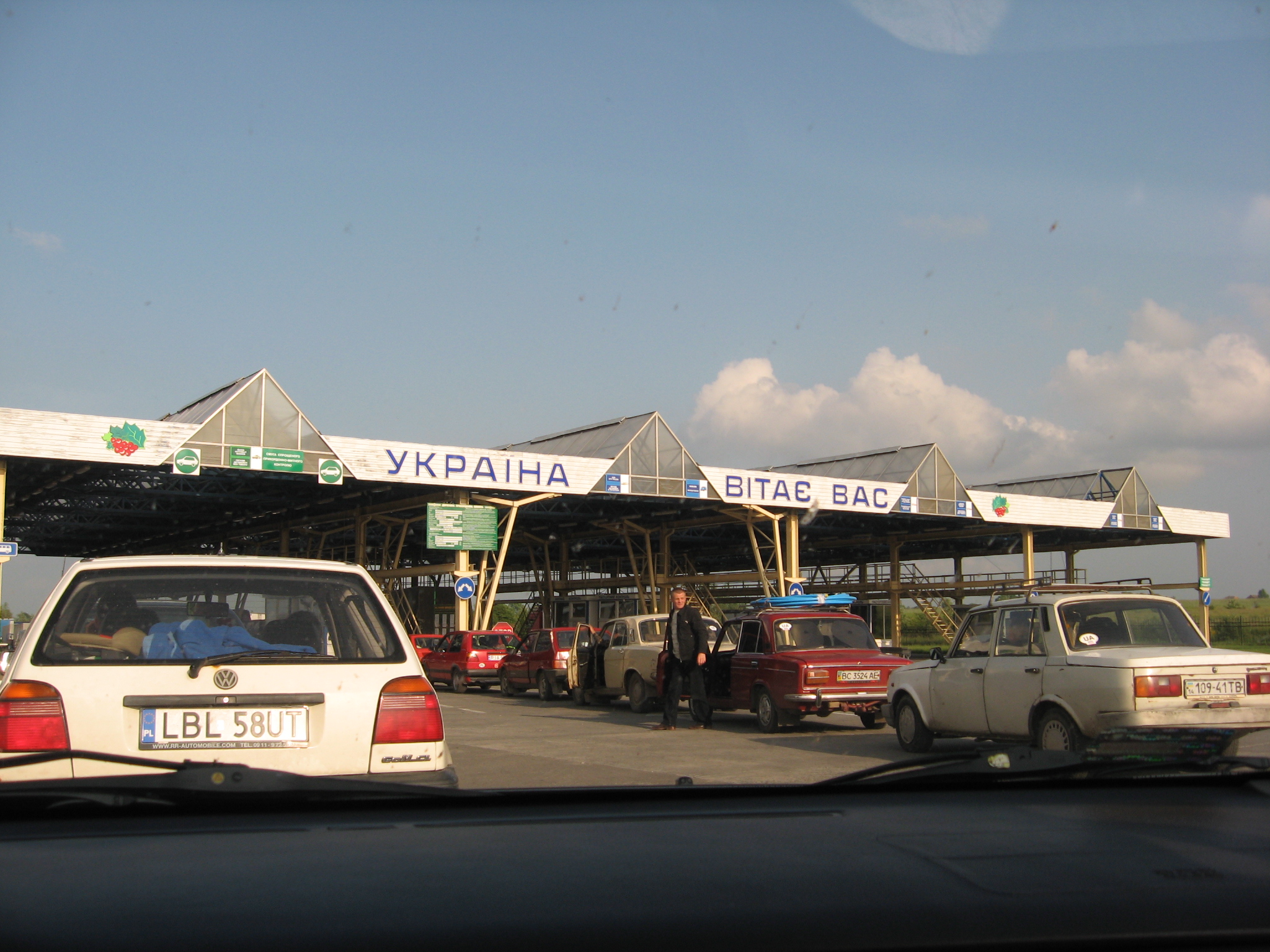
In a historically unprecedented move, on 4 March 2022, the Council of the European Union has unanimously approved the proposal made two days earlier by the European Commission regarding the activation of the Temporary Protection Directive (2001/55/CE) and the application of such instrument to people fleeing Ukraine. Following the large-scale invasion of the Ukrainian territory launched by Russian armed forces on 24 February 2022, the European Union has expressed its support for Ukraine and its citizens and, at their extraordinary meeting on 27 February, home affairs ministers discussed the possibility of establishing an appropriate temporary protection mechanism for the reception of persons seeking shelter in the EU. Such a commitment has been then reaffirmed by President Ursula von der Leyen during her visit to Bucharest and Bratislava to discuss the situation of refugees coming to the EU from Ukraine.
As a matter of fact, substantial portions of Ukrainian territory now constitute areas of armed conflict from which thousands of persons are fleeing their homes seeking safety, protection and assistance, as the military offensive has caused destruction of civilian infrastructure and civilian casualties. As reported by the UN High Commissioner for Refugees, more than 3 million refugees crossed borders into neighbouring countries. Among these, more than 650,000 have reached bordering EU Member States in the first ten days of war. Many more are on the move both inside and outside the country and as the situation continues to unfold, an estimated 4 million people may flee Ukraine.
In this context, the European institutions have decided to trigger for the first time in more than 20 years an instrument which had been developed as a response to the need for special procedures to deal with mass influxes of displaced persons, following the 1990s conflict in Kosovo and former Yugoslavia. Indeed, temporary protection is an exceptional measure to provide immediate aid to displaced persons from non-EU countries, unable to return to their country of origin. It is meant to be activated when there is a risk that the standard asylum system is struggling to cope with demand stemming from a mass influx, risking a negative impact on the processing of claims. The Directive aims to reduce discrepancies between the policies of EU States on the reception and treatment of displaced persons and at the same time to promote solidarity and burden-sharing among Member States when receiving large numbers of potential refugees at one time. It can be triggered only through a decision of the Council, following the proposal of the Commission.
The Directive foresees harmonised rights for the beneficiaries of protection, including a residence permit for the entire duration of the protection, which can last from one year to three years if prolongated through a decision of the Council; appropriate information on temporary protection; access to employment, to accommodation or housing, to social welfare or means of subsistence, to medical treatment, and to education for minors; opportunities for families to reunite in certain circumstances, and guarantees for access to the normal asylum procedure.
The act also has the objective to decrease pressure on national asylum systems by creating a protection status with reduced formalities. On one hand, this will avoid overwhelming national asylum systems and allow the Member States to manage arrivals in an orderly and effective way in full respect for fundamental rights and international obligations. On the other, it is functional to the promotion of a balance of efforts between Member States, meant to lead to enhanced solidarity and responsibility sharing.
Regarding the specific Ukrainian case, the proposal of the Commission consists in granting temporary protection to three categories of people: Ukrainian nationals residing in the country; non-Ukrainian nationals and stateless people legally residing in Ukraine who cannot safely return to their country of origin (i.e. asylum seekers, refugees and their families); family members of these groups, regardless of whether they could return in safe and durable conditions to their country of origin. Additionally, those who fall outside these sets of people must be allowed to access the EU to transit toward their countries of origin.
Along the proposal for temporary protection, it is worth mentioning that the Commission also adopted operational guidelines for the management of external borders, which provide for facilitation for Member States border guards in conducting controls under the Schengen rules. The document recommends the cooperation between Member States and EU agencies, namely FRONTEX and Europol, and it includes flexibility as regards entry conditions (e.g. in case of absence of a passport or valid entry visa) and the simplification of border control at the EU border with Ukraine through the loosening of regular border checks. The rationale is to ensure efficient border management, in order to help those fleeing the war find shelter without delay and to facilitate the access for rescue services and humanitarian assistance, whilst maintaining a high level of security checks.
Following the Commission’s moves, the Justice and Home affairs Council has adopted an implementing decision introducing temporary protection for Ukrainian nationals, as well as third country nationals or stateless persons benefiting from international protection in Ukraine and their family members, if they resided in Ukraine before or on 24 February 2022. As regards third country nationals residing in the country with a permanent residence permit and who cannot safely return to their country, Member States shall apply either temporary protection or adequate protection under their national law. The decision allows Member States to grant protection also to third country nationals residing legally in Ukraine and who are unable to safely return to their country of origin, as well as Ukrainians who fled not long before 24 February or found themselves in EU territory just before that date.
Thus, the Council’s decision replicates the proposal of the Commission, including the provision through which the European Commission itself is committed to coordinate cooperation and exchange of information among Member States (in particular in relation to monitoring reception capacities and identifying any need for additional support), by constantly reviewing the situation in concert with the States, FRONTEX, the European Asylum Agency and Europol.
The decision lacks the definition of a redistribution mechanism and therefore relies on voluntary quotas, but, in the spirit of solidarity, Member States shall exchange information regarding their reception capacities and the number of persons enjoying temporary protection in their territories. This choice is also related to the possibility for beneficiaries of protection to circulate in the territory of the Union, a de facto redistribution of the concerned individuals. Regarding the issue of burden-sharing among Member States, Chapter IV of the Temporary Protection Directive specifies that States have to indicate the number of displaced persons they may receive, and that this information shall be set out in the following Council implementing decision. Member States may then indicate additional hosting capacity by notifying the Council and the Commission. Basing on the information reported by few Member States, the Council’s decision has initially identified reception capacities amounting to 310,000 places, which have to be added to the absorption capacity of the Ukrainian diaspora residing in the EU.
These steps taken by the Commission and the Council of the EU have been welcomed with favour by human rights advocates and humanitarian NGOs that had already asked for the activation of an adequate mechanism to face the mass influx of refugees leaving the conflict area. These have highlighted the significance of the moment and the need for a solidarity mechanism that requires all EU countries to share the responsibility for hosting all people fleeing from danger. In particular, a recent statement from OXFAM recalls the poor track record of the EU regarding solidarity and responsibility sharing and wishes that all EU Member States take responsibility to ensure that people have decent and dignified conditions to live in and can rebuild their lives in safety. In fact, it is impossible to expect Ukraine’s immediate neighbours to bear on their own the responsibility of hosting an increasing number of refugees.
Nevertheless, it has also been widely noted how such a mechanism could and should have been triggered also during other critical situations of mass displacement. Scholars had previously criticised the inactivation of the Directive in the face of several humanitarian crises that have, namely Libya and Tunisia in 2011, Ukraine itself in 2014 and Syria since with a peak between 2014 and 1026. In each case, displaced persons arrived in EU Member States en masse. In particular, the arrival of Syrian refugees has put massive pressures on EU institutions and front-line Member States. This way, the Member States failed to fulfil their protection responsibilities, since asylum-seekers escaping from similar conditions were treated differently in each State, in the absence of group-based temporary protection.
One of the reasons behind the inactivation of the mechanism is the process needed to reach the necessary political agreement between Council members on the decision to activate the Directive (the required threshold is of a two-thirds majority). Among the political reasons preventing the activation, the most relevant were the fear that it would attract more refugees to Europe and concerns about burden-sharing. Opposing burden-sharing is an indicator of the lack of solidarity among the Member States. Thus, it is possible to conclude that inactivation of the Directive indicates a crisis of the fundamental values of European integration. In particular, Member States from the Visegrád group, the same ones that are now facing the mass arrival of refugees, have cast a shadow on burden-sharing in the past by opposing relocation schemes.
Observers argue that while today’s temporary protection decision is to be welcomed as a positive shift in the attitude of the EU and its Member States, precisely because it abandons many of the strictest precepts of EU asylum procedural rules (i.e. visa requirements, the Dublin system, family reunion conditions, limits on employment) and restates the centrality of cooperation, this still raises obvious questions about the double standards which apply to others fleeing war or persecution. Concern regarding such double standards have been expressed also by Amnesty International, which argues that by restricting that assistance principally to Ukrainians fleeing conflict, the Council has once again exposed the limitations of Europe’s solidarity.






